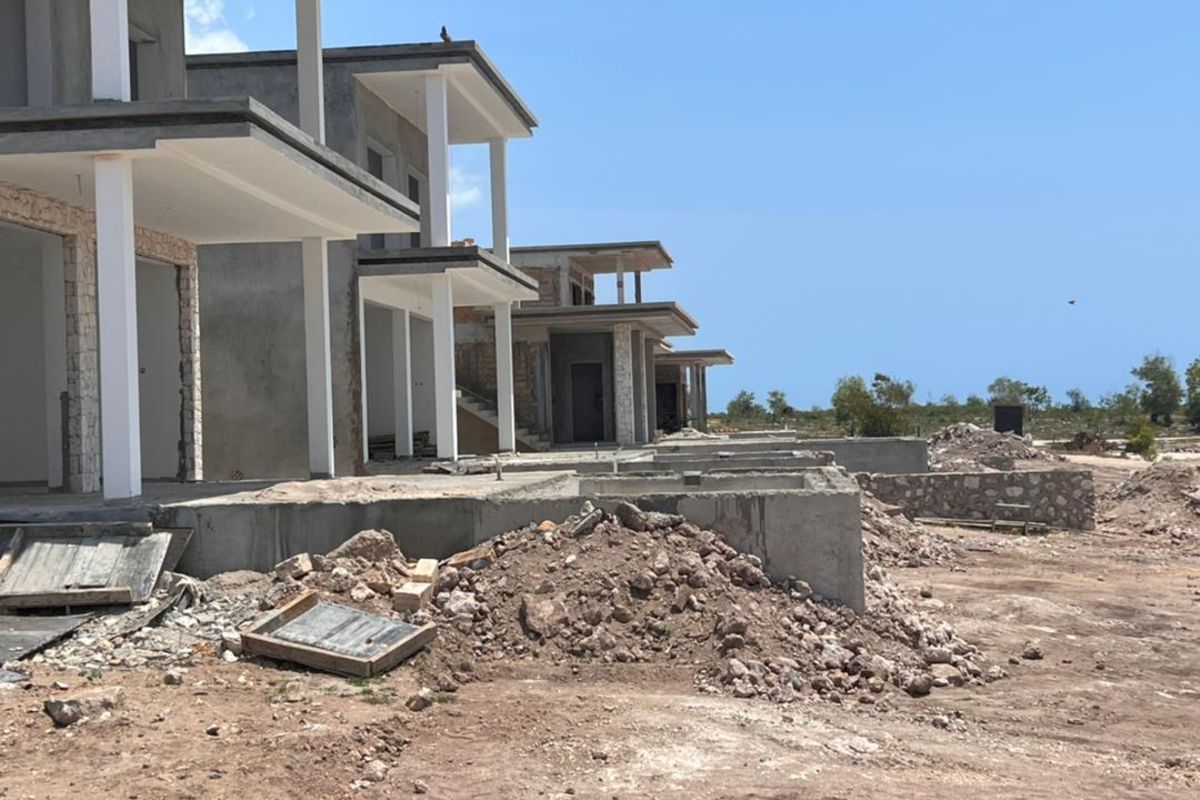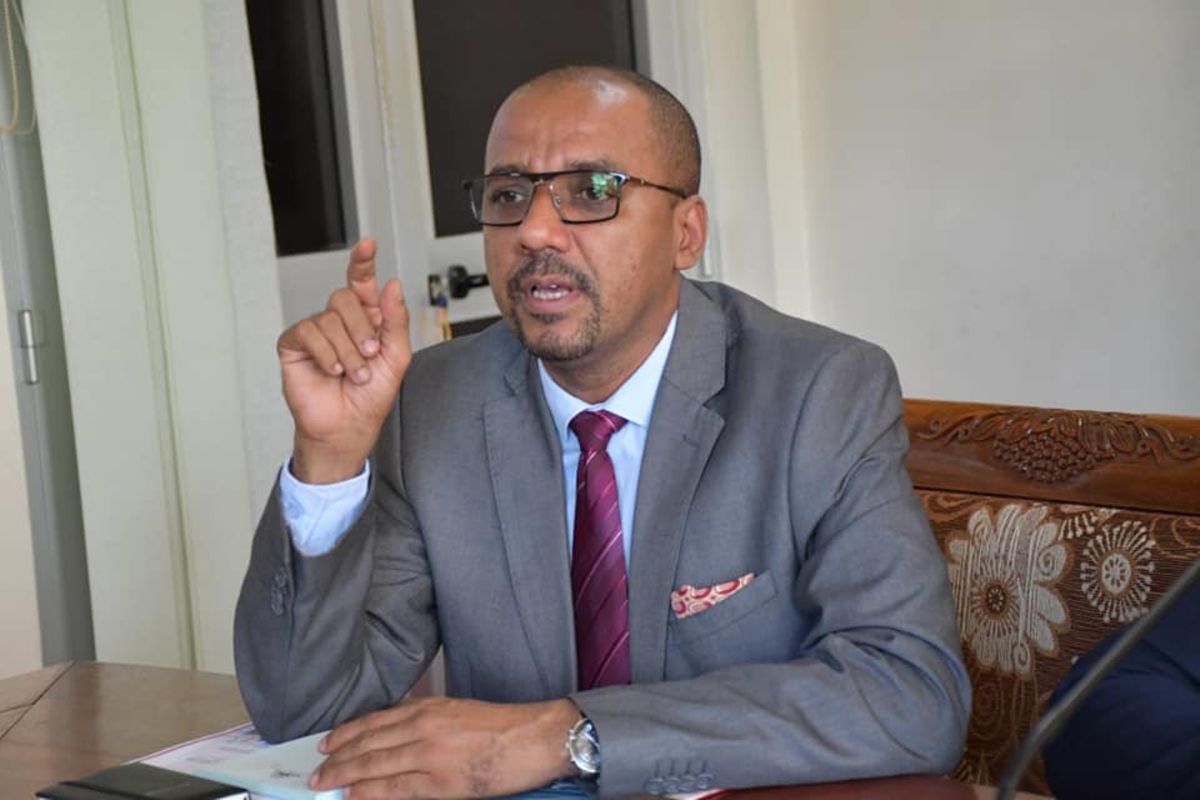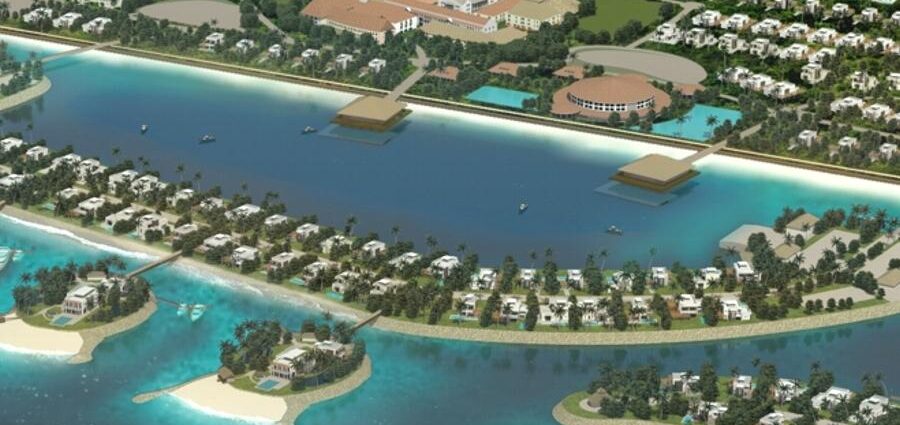
Dar es Salaam. The revocation of British developer Pennyroyal’s leasehold for the construction of Blue Amber Resort by the Revolutionary Government of Zanzibar has sent shock waves in the nascent property market on the Isles.
Audited reports presented to authorities show that the developer had so far injected $55 million (Sh126.5 billion), with the total value of the project estimated at $1.6 billion (Sh3.6 trillion). The property sits on 411 hectares in Matemwe, northeast of Zanzibar.
The recent developments have left property buyers, prospective developers and site workers pondering their next move, with many wondering why the lease was terminated with a court order in place.
The affected have various reasons to be frustrated and disappointed, just as varied are their nationalities that are spread across the world from Brazil, Poland, Germany, USA, Japan and Tanzania among others.
These were former tourists and diplomats who visited the Island and fell in love with it, and when the opportunity fell in place for them to live in the tranquility of Zanzibar, it was something they couldn’t afford to miss.
To most, the investment they had made in properties at Blue Amber was the last drop of their savings as they head towards retirement.
The villas at Blue Amber’s first phase cost between $240,000 (Sh553 million) and $600,000 (Sh1.38billion) depending on the size and some had paid up to 80 percent of the costs with delivery expected to be in December, but that was until the authorities abruptly pulled the plug.
Ground breaking for the boundary walls of the site was done in 2014, whereas that of the Hotel, Dive center, Beach Club, shops started construction in 2018.
The villa sales and construction kicked off in August 2021, after a delay that developers attributed to the outbreak of the Covid-19 pandemic and certain regulations in Zanzibar that were changed in 2021 to give investors residency on purchase.
Prospective property owners speak
The buyers, whose identities are protected, who spoke to The Citizen at separate times expressed dismay, with some calling on the Revolutionary Government of Zanzibar to intervene in their plight.
Anne*, a US citizen says the announcement had left her in utter shock and disbelief that the Ministry of Land would come to such a conclusion even with the full knowledge that many people had invested large sums of money with the blessings of the Zanzibar Investment Promotion Authority.
“Prior to coming to Zanzibar I had considered going to Samara Lombok project in Indonesia that I had looked into, but at the time, I felt that Zanzibar offered a more stable and trustworthy option,” she says.
She adds: “To date I have paid $314,375 which is 90 percent of the total cost of the villa. The thought of losing that money is sickening, and it is even worse knowing that ZIPA did not consider this fact.”
In her opinion, this could have far reaching ramifications for future investments because it points at an environment which is not stable at a time when government is promoting the Island as a safe haven for investments.
“My hope is that the Zanzibari authorities realise the international repercussions of their actions, they still have room to do the right thing and grant Pennyroyal the permit to complete the project,” she says.
Christophe*, a Polish national has been a frequent visitor to Zanzibar ever since he was an 18-year-old teenager and it is these trips that influenced his choice.
He had made payments of $300,000, with the hopes that his villa would be complete by the end of the year but now he sees his retirement plan up in smoke.
“This is shocking and has ruined my retirement plans. I had invested my savings into Zanzibar and was planning to get the residence permit and move to the villa at the end of this year.
I do not understand how the government has allowed this situation to arise given the fact that ZIPA was supervising everything all the way,” he says.
He finds the claims that have been put forward regarding a certain land case which was reportedly lost as the cause for termination completely incomprehensible.
“I find it very confusing that this property claim is surfacing just now yet the Blue Amber development has been in the works for 7 years,” he says.
Most of them say prior to their investment in the Blue Amber project, they consulted with the ZIPA who gave the nod.
Investment Minister
Whereas the buyers are worried, Zanzibar Minister of State in the President’s Office (Labour and, Economy and Investment) Mudrick Ramadhan Soraga told the media that the government has suspended the land lease agreement but the Pennyroyal Company continues to hold the investment permit.
“The land leasing agreement has actually been suspended but they still continue to own the investment permit while the case is ongoing in court and on the government’s side this issue is with the Attorney General,” says Mr Soraga.
It is not immediately clear how the developers were supposed to use the investment permit without the land lease or construction permit.
Workers sent home
As a result of the termination of the project, some 150 workers (both professional and casual) have been sent home with immediate effect and the offices have closed.
The Citizen’s effort to reach the administration did not bear fruit as phones went unanswered and their offices at Migoz Plaza were under lock and key. Speaking at the site, workers said they have received the news on the suspension of the project at a time when everything seemed to be going well.
Haji Zada Haji, a mechanic, says the construction of the Resort had reached an advanced stage and many youth from Unguja North Region benefitted through employment at the construction site.
He adds, “We appeal to the government to look afresh on the effects regarding the revocation of the land ownership for the benefit of the Isles investment and its economic development in general.”
John Haji Khamis, also an employee at the site, says the project had reached to an advanced stage, hence its suspension can discourage other investors to invest in the Isles.
Real estate agent
James Prevost is the regional director for Remax, Tanzania, his company has over the years been involved in property deals globally.
In his view, real estate off-plan sales is a new industry for Zanzibar and naturally there will be some projects which may not make it to the completion stages based on the law of averages.
“During the Economic Crisis of 2008 many Dubai developers went bankrupt and investors lost billions, but Dubai recovered with ease because the government passed a law that required all real estate transactions funds to be placed into a third party Escrow Services account, which protects both buyer and seller from similar unfortunate occurrences like Pennyroyal lease cancellation,” he says.
He adds: “With the cancellation of the Pennyroyal’s Blue Amber project there will be some uncertainty with investors investing in similar projects. In terms of the clients/buyer who purchased units with Blue Amber, we will have to wait for the legal process to take its course before our legal counsel can advise them on their options.”
He, however, says that the economics and return on investments in Zanzibar outstrips many holiday destinations and the astute investors will see pass one developers mishaps and continue to look to the future and enormous potential of the island.
“In terms of the clients/buyer who purchased units with Blue Amber we will have to wait for the legal process to take its course before our legal counsel can advise them on their options. ”
Zanzibar as a destination
However, as Blue Amber developers ponder their next step in an attempt to salvage the $1.6 billion (Sh3.6 trillion) project, a recent survey has revealed Zanzibar’s real estate is lagging behind other markets such as Dubai, Seychelles and Mauritius in attracting investment.
The beautiful completed structures, with others yet to be finished, are a breath of fresh air in an Island famously known as the Spice Islands.
The Citizen’s survey, shows that some developers in the archipelago have remained stuck with properties whose construction completed several years ago and cannot get the incentives that were attached as conditions by the authorities.
Allan Smith has a property that he purchased two years ago from one of the developers and one of the incentives that was promised to him was that he would be granted a residence permit, but he has yet to acquire one, to date.
“I had been to Zanzibar several times and considered making this my second home from the UK and part of the incentives we were given was a residence permit. As I speak to you, I am on a tourist visa,” he says.
According to him, this means that he has to travel back and forth in order to access the property because once his visa expires he is required to leave the country before it can be renewed any further.
“It is costly to make such travel arrangements especially in a world that has gone through recent shocks of the pandemic which forced economies to go into lockdown and rising costs of air travel,” he says.
ZIPA incentives
According to section 31(2) of The Zanzibar Investment Promotion and Protection Authority (ZIPA) Act No. 14of 2018, any buyer who purchases property of the value not less than $100,000 in Real Estate Development is entitled to several benefits. The benefits include: A resident Permit for the primary owner and their husband/wife/spouse and four children who are under 20 years, 100 percent foreign ownership, 100 percent exemption from worldwide income for foreigner, 100 percent allowance for free repatriation of profit after tax among others.
With all these incentives in place, buyers like Mr Smith, are still not guaranteed anything, because to this date all he has is a sale agreement from the developer, with ZIPA yet to issue a sub-title deed for the property.
Other developers
Speaking to The Citizen at different times, developers at Fumba Town by CPS and Fumba Uptown Living said the pace at which implementation of certain conditions are progressing makes it difficult to achieve certain goals in time.
They also cited issues of residence permit and title deeds as a major impediment.
Engineer Saeed Bakhressa is the project director of Fumba Uptown Living where over 200 units have been completed injecting over $100 million in the construction.
He believes that for the real estate industry in Zanzibar to catch up with other competing markets such as Mauritius, there is need to go into a different trajectory.
“The process of obtaining a title deed for the Free Economic Zones should be streamlined between ZIPA and lands ministry to make it faster once an investor has completed his payments.
As a result what we are issuing now are provisional certificates of ownership as we continue to wait for the title deeds,” he adds.
According to him, the ideals of a free economic zone is yet to be realised, as residency permits once issued will have to be renewed every 2 years.
“This is not only a very short time frame but very costly as investors need time to settle down after buying a property which is a very lengthy and exhaustive process especially if you are a foreigner. An ideal time frame for renewal of residency permits should be extended to 5 years because it gives investors more time to settle, thereby increasing their confidence to invest in Zanzibar,” says Bakhressa.
He notes that as a result of these regulatory shortcomings some buyers are forced to pull out of the buying agreement or don’t buy at all!
“The laws that we have are very well spelt out on paper regarding issues such as residency, however, when it comes to the implementation that is where the delays begin,” he says.
In Fumba Town by CPS, where they are developing 1,300 units, the chief executive officer (CEO) Sebastian Dietzold, on his part, hailed the strategic decision made by the government to reserve land for such development saying it shows how determined they were as early as the 1990s.
He says that the difference between real estate investments, in comparison to other industries, is that the value addition takes place locally and the money stays here.
According to him, it is critical that property owners get residency because no one wants to invest hundreds of thousands of dollars and then needs a visa to access their property. He adds that although the future looks bright for developers, the labour and tax laws are very challenging.
Former minister speaks
Lending his voice was a legislator in Zanzibar’s House of Representatives, who also spoke on conditions of anonymity. He says the way that ZIPA handles the initial projects could make or break the Real Estate sector. “There is need for improvements of the regulatory frameworks and government commitment towards such investments in real deeds and not otherwise,” he says. According to him Zanzibar currently attracts hundreds of thousands of tourists, but most of these tourists are leisure tourists who usually do not return. “I think the moment is ripe for Zanzibar to attract investment tourists through real estate just like other competing markets because these properties can never be moved irrespective of the nationality of the investor,” he says.
Adding, “Though different strides have been made in the investment portfolio, the mentality of those put in charge has not changed because they don’t see investors as government partners in development.” Effort to reach out to ZIPA for comments were futile as the executive director Sharif Ali Sharif refused to comment on the matter despite several phone calls and messages.
Original Media Source Share this news
Facebook
Twitter
LinkedIn
WhatsApp
This Years Most Read News Stories

Top News
Zanzibar free from outbreak of Marburg virus
The Zanzibar government has on Friday April 7 assured international travelers that the Isle is safe and open for business.Continue Reading
April 7, 2023

Top News
Juma Haji Duni: A legacy of resilience and leadership in Zanzibar politics
The recurring inefficiency among some contractors could lead the government to favour foreign firms, sparking criticism from stakeholders advocating for local participationContinue Reading
September 4, 2024

Tanzania Foreign Investment News
‘Pilot error’ caused Precision Air crash
Reports says prevailing poor weather led to the pilots failing to heed warning signals.Continue Reading
March 24, 2023











